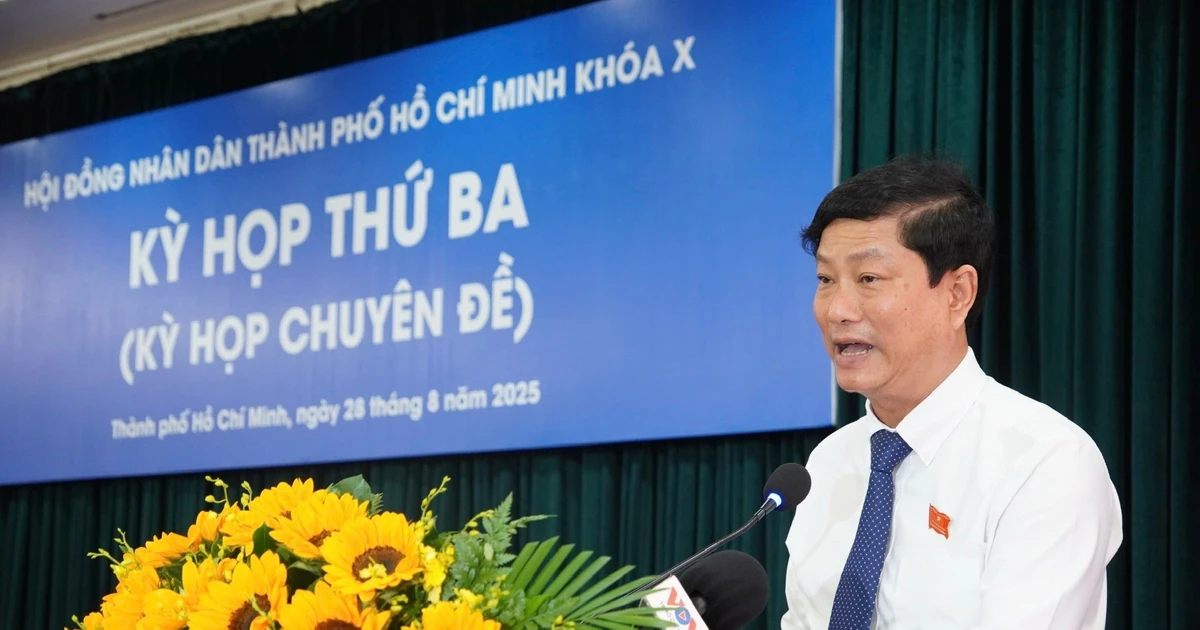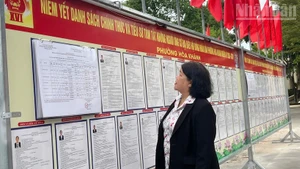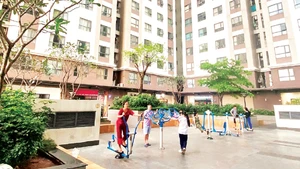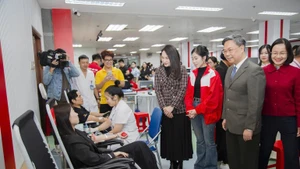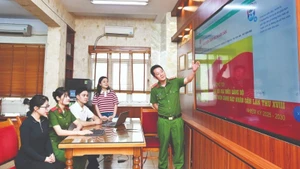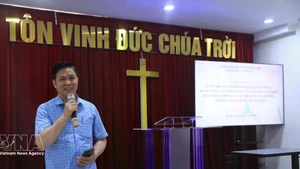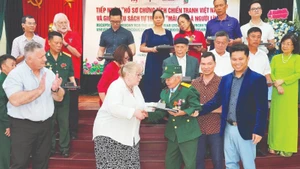The Ho Chi Minh City People’s Council passed 35 resolutions not only to meet practical needs following the administrative unit merger, but also to create a legal framework for governance, provide momentum for socio-economic development, and gradually perfect the two-tier local government model. These policies are assessed as practical and impactful, directly benefiting both the public sector workforce and citizens.
Timely support policies for officials and employees leaving their posts
One notable resolution concerns employment loan support for officials, public servants, non-specialised staff, and workers who leave their jobs due to organisational restructuring in Ho Chi Minh City.
Accordingly, the maximum loan amount is up to 300 million VND per person, depending on demand, repayment capacity, and available capital, as assessed by the Ho Chi Minh City branch of the Viet Nam Bank for Social Policies.
The loan form is unsecured, certified by commune-level People’s Committees. The loan term is allowed up to 120 months, as agreed between the bank and the borrower. The interest rate is preferential, equivalent to the rate applied to poor households as regulated by the Prime Minister from time to time.
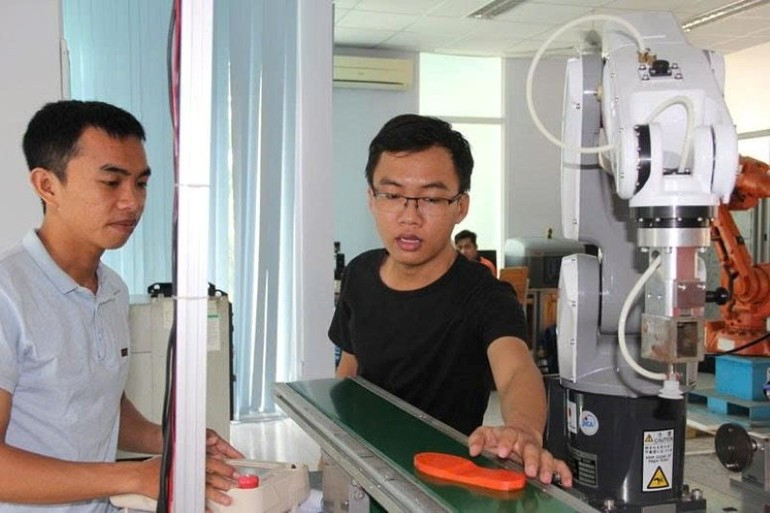
Individuals who receive a resignation decision due to the administrative reorganisation of political and administrative units in Ho Chi Minh City (if in need of a loan) must complete loan application procedures within five years from the effective date of the resignation decision.
The implementation of this Resolution will be applied uniformly across the city, ensuring effectiveness, transparency, and compliance with legal regulations. It also specifies that relevant agencies and units must strictly review the lending process to guarantee the right beneficiaries, proper purposes, and thorough appraisal, thereby aiming to use the city’s budget efficiently, economically, and in line with fiscal capacity, avoiding loss and waste.
In addition, the city has introduced policies to support vocational training for individuals who left their positions due to the restructuring of political systems and administrative units under the city’s two-tier local government model. Accordingly, the maximum training cost paid to vocational education institutions for organising training courses for these individuals is up to 12 times the basic salary per person per course.
Beyond covering training expenses, officials, public servants, civil servants, and part-time workers who resigned due to organisational restructuring are also entitled to meal allowances of 30,000 VND per person per actual training day and travel allowances of 200,000 VND per person per course.
Policies on incentives for continuing contributions
Alongside measures for officials and civil servants who leave their posts, Ho Chi Minh City has promptly introduced policies for those who continue to devote themselves.
The city has issued a housing rental support policy for officials, public servants, employees, and workers in Ho Chi Minh City whose salaries are paid from the state budget and who are affected by the provincial-level administrative reorganisation.
Depending on their position allowance coefficient, they are entitled to housing rental support ranging from 4.8 million VND to 10.4 million VND per person per month. This support will be provided from July 1, 2025, until June 30, 2027.
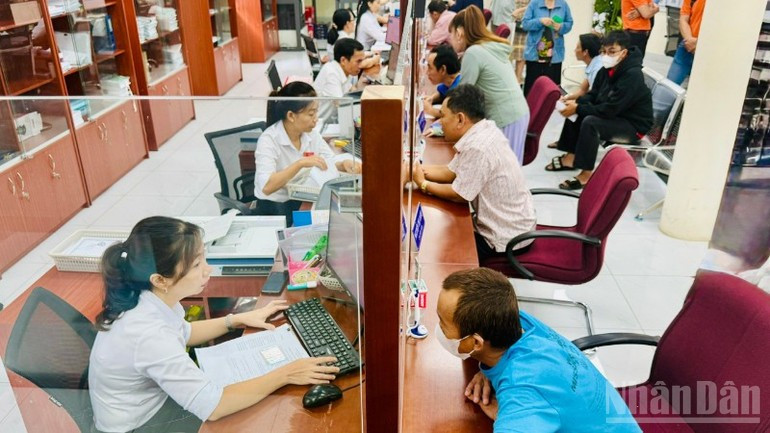
In addition, the city has passed a Resolution on additional income policies under Resolution 98/2023/QH15 of the National Assembly on piloting a number of special mechanisms and policies for Ho Chi Minh City (replacing Resolution 08/2023). This policy has now been expanded to cover the former provinces of Binh Duong and Ba Ria–Vung Tau.
Specifically, officials and civil servants who perform their duties at a “good” or “excellent” level will, depending on their classification, receive additional income either at a fixed rate of 3 million VND per month or up to 1.8 times their salary grade, rank, or position.
The City People’s Council has assigned the City People’s Committee to promptly and effectively implement this Resolution, issue regulations and guidelines for performance evaluation criteria tailored to job characteristics, and establish measurable indicators to assess individual work efficiency. These will serve as the basis for allocating additional income, ensuring the principle of performance-based pay, thereby improving efficiency and productivity in line with the value of labour and contributions by officials, public servants, and workers. This policy is also closely linked to administrative reforms, aiming to enhance satisfaction among citizens and businesses.
Care for healthcare, education, and social welfare
Ho Chi Minh City is not only timely in issuing policies for officials and civil servants, but is also implementing practical support mechanisms for citizens to ensure sustainable social welfare, helping people achieve both material and spiritual stability.
The city continuously invests in education, healthcare, and social security policies across its territory.
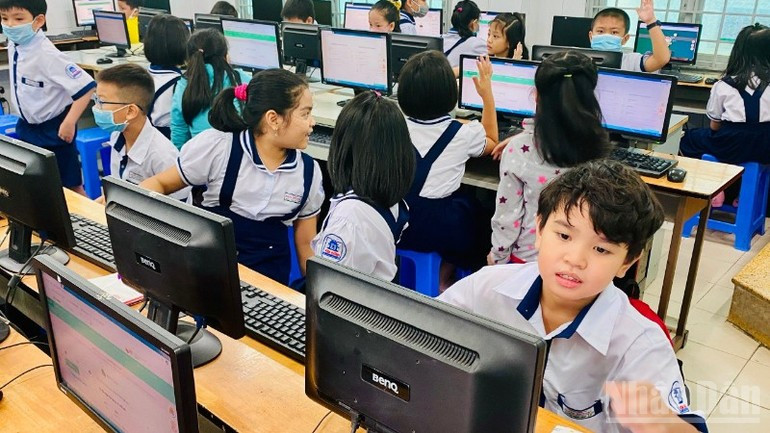
Specifically, the city has recently introduced a policy to support educational expenses for students, graduate students, and doctoral candidates from ethnic minority groups.
Eligible beneficiaries include students permanently residing in the city from the Cham, Cho Ro, and Khmer communities; other ethnic minorities who have just exited near-poor status within 36 months; graduate and doctoral students of Cham and Khmer origin; and graduate/doctoral students from other ethnic minorities in poor or near-poverty households as defined by city standards. They will receive study cost support equal to 60% of the basic monthly salary per person, for up to 10 months per academic year.
The number of years covered aligns with Ministry of Education and Training regulations for each programme level of study.
Alongside policies for ethnic minority students, the city also promotes early childhood education development, including: one-time funding support of 35–70 million VND per institution for private and independent preschools located in industrial zones, as well as nurseries and kindergartens in areas with high concentrations of workers (depending on student numbers); a monthly allowance of 240,000 VND per child for preschool children of workers employed in industrial zones or labour-intensive areas; and a monthly allowance of 1,000,000 VND per teacher for preschool teachers working at non-public kindergartens in industrial zones or in nurseries/kindergartens in areas with many workers.
On this occasion, the city also introduced measures for collectives and individuals to encourage, reward, and support efforts to address the low fertility rate. Women who give birth to two children before the age of 35 will receive a one-off cash payment of 5 million VND. Pregnant women and newborns from poor and near-poor households, social welfare beneficiaries, and residents of island communes or special administrative zones will be supported for prenatal and newborn screening with a total payment of 2 million VND.
At the same time, the city is strengthening healthcare for the elderly. Elderly people will receive a social pension allowance of 650,000 VND per person per month. This policy helps reduce the burden on families and on society in caring for older people.
Effective implementation of social welfare policies creates a foundation for economic, political, and social stability in the rollout of the city’s two-tier local government model. It helps consolidate the gains of economic and political renewal, meets the legitimate and ongoing needs and aspirations of the public, builds people’s trust in the reform process, and strikes a balance between economic growth and social equity.
Chairman of the Ho Chi Minh City People’s Council Vo Van Minh has instructed agencies to urgently issue plans to implement each resolution, specifying clearly the responsible persons, tasks, deadlines, resources, responsibility and expected outputs.
During implementation, authorities must regularly urge, supervise, and inspect in order to promptly identify and rectify any shortcomings or weaknesses at an early stage.
Moreover, agencies should continue to proactively review and thoroughly prepare content, and propose in a timely manner new mechanisms and policies suited to practical needs, aligned with the city’s development orientation and the legitimate aspirations of the public, officials, civil servants, and workers.
